“I attended all my antenatal at the health facility”, said Aisha Alhassan, a resident of Maito community narrating her experience at the Maito Primary Health Centre (PHC) in Wushishi Local Government Area of Niger State (LGA). “However, when I started labor around 5 am, the facility was closed. No health worker was present. We were there till around 10 am when we decided to go to a private hospital in Wushishi. I delivered there”. This, according to Aisha and other community members during the town hall meetings organised by Nigeria Health Watch in October 2021, under the Community Health Watch project, was due to the poor human resource for health in the PHC. “The health workers are just two, and one or both usually come around in the morning, between 8 am and 11 am and close by 4 pm. They both live in Wushishi and only come and go”, confirmed Fatima Aliyu, a traditional birth attendant (TBA) who has been called on to take several deliveries at night, due to the absence of health workers in the PHC.
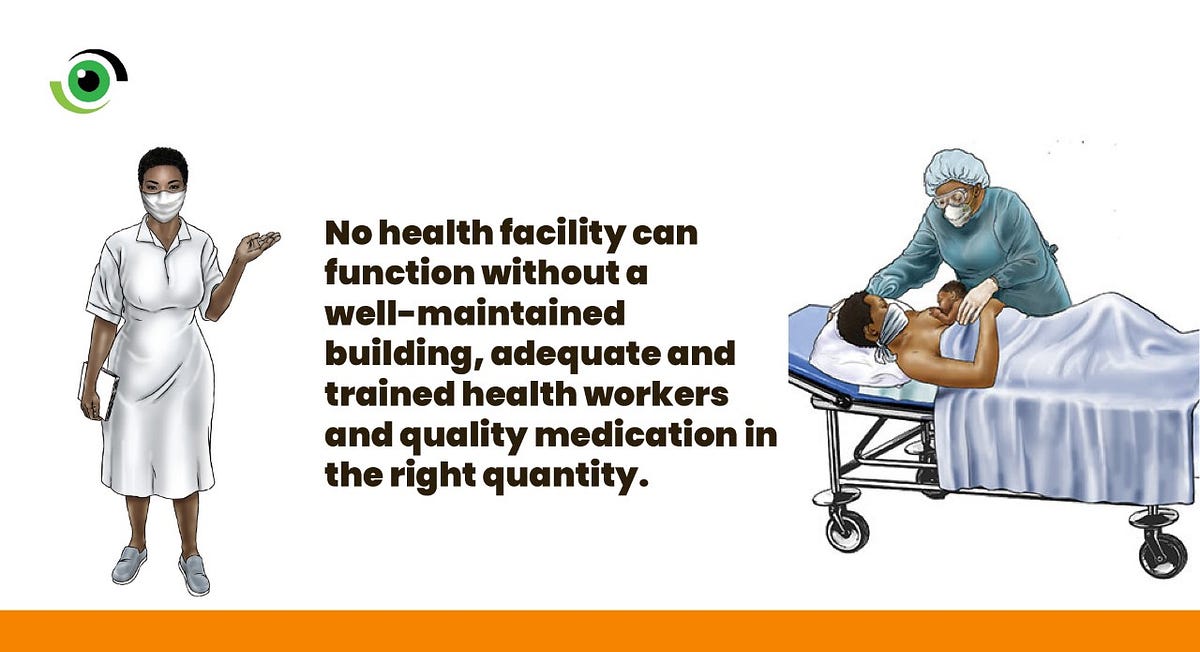
Alhassan’s experience is not an isolated incident as several other community members shared similar experiences in the process of accessing healthcare at the PHC. In addition to inadequate staff, the PHC also lacks access to water. The solar borehole installed when the facility was reconstructed in 2019, following a Nigeria Health Watch report which called attention to its dilapidated state, is no longer functional. As a result, both health workers and community members source water from neighbouring houses. In addition, the PHC is not fenced which makes the community members uneasy as they feel that this leaves it vulnerable to outside influences.
Bankogi Community PHC
Inadequate human resource for health, poor infrastructure, and sub-optimal water, sanitation, and hygiene (WASH) facilities, as well as lack of medication, were some of the challenges identified by the community members during the community engagement meetings in Bankogi community, which is about 30 kilometres from Maito.
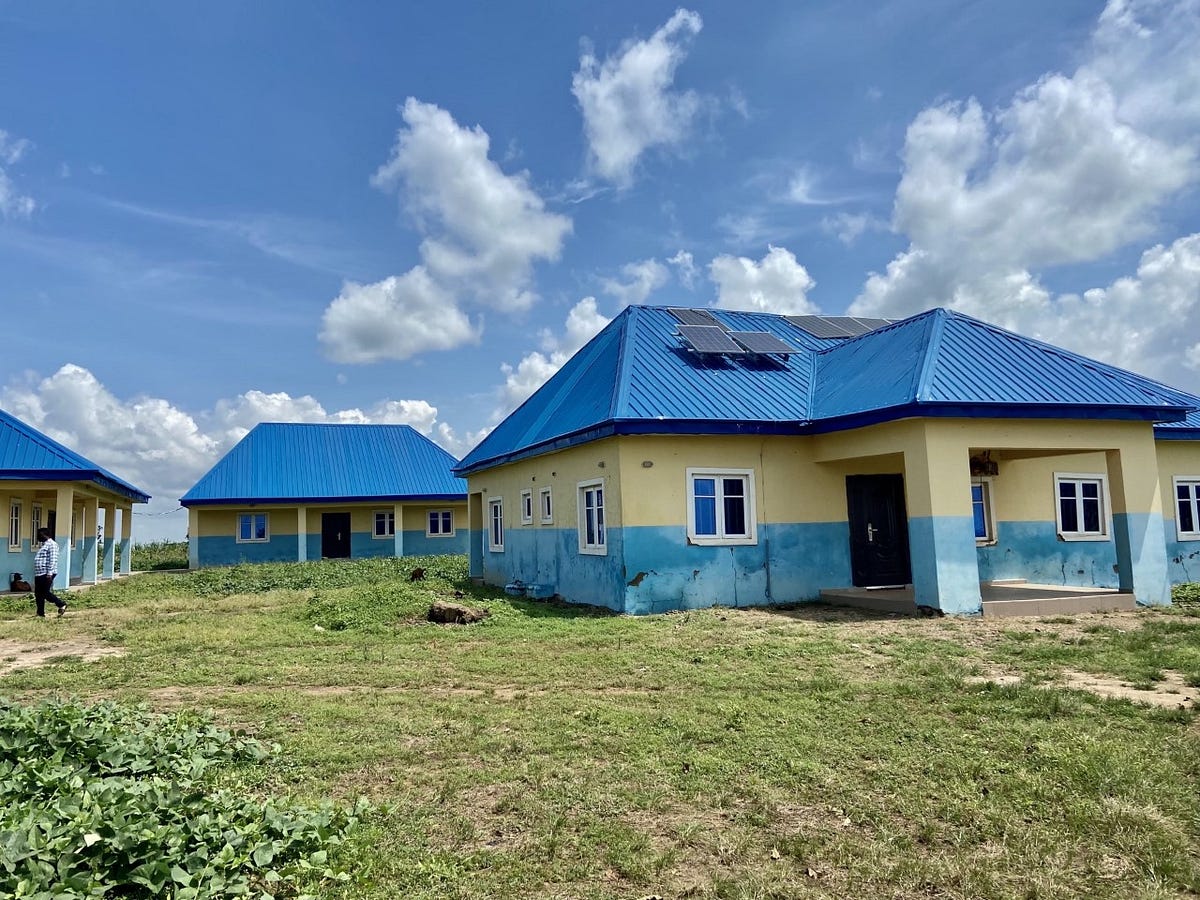
Seated under a tree with some of his community members, Muhammad Salihu, District Head of Bankogi, could barely hide his angst as he narrated how community members are forced to access care from a dilapidated health facility. “How can you have a health facility without water or a toilet?” he asked with a sigh. “The building is small and old, with broken walls and a leaking ceiling”. Salihu also said that at various times, the community had mobilised resources to fix some broken structures in the PHC, but the money was never enough for a complete rehabilitation.
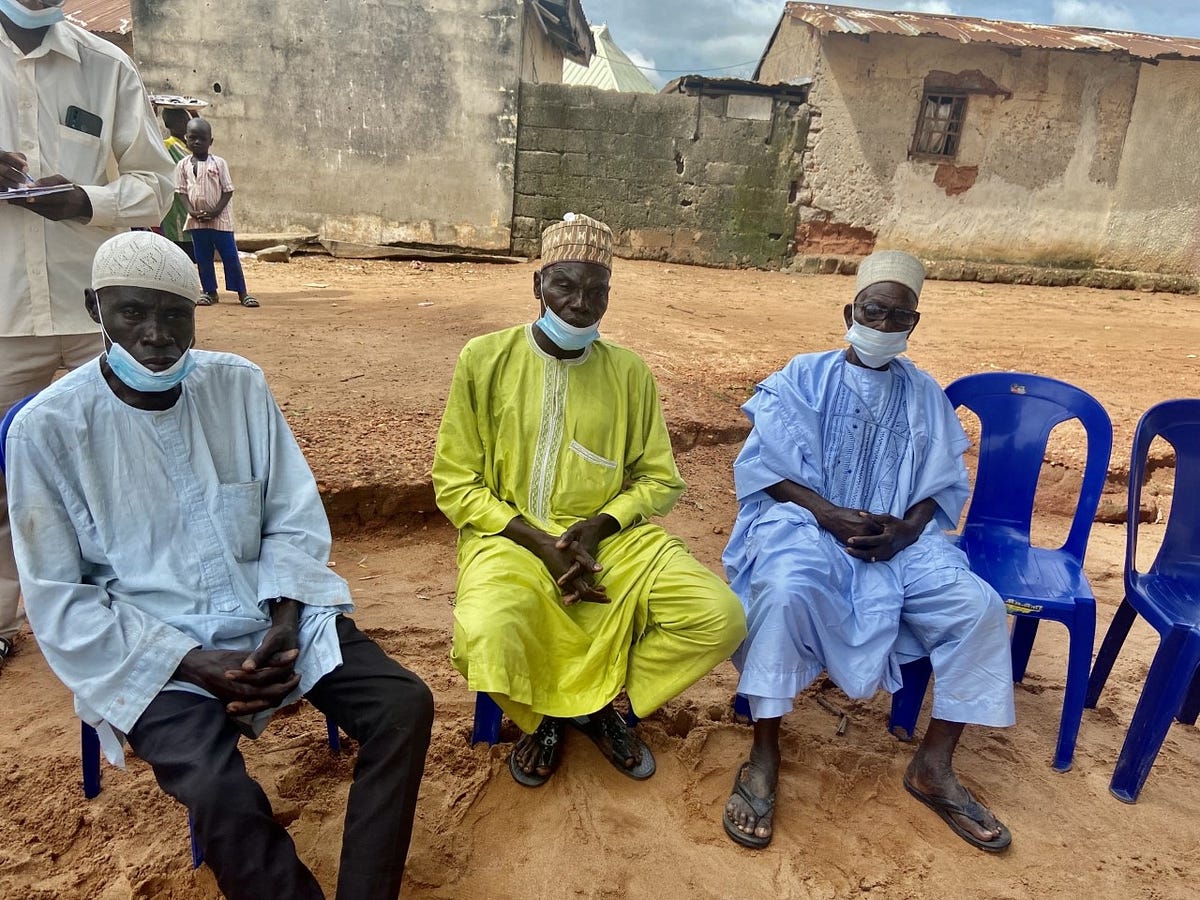
Photo credit: Nigeria Health Watch
According to Aisha Gambo, one of the only two health workers at Bankogi PHC, in addition to the numerous challenges mentioned by the community members, they also share the facility with birds. “The ceiling is broken, and birds have made it home. We must endure their cries and smell every day at work”, she said. Another challenge for her is the fact that the PHC uses water from a nearby well to bathe newborn babies and clean women who have just given birth. This, she said, is a concern as the water could be potentially unsafe for both the mother and child.
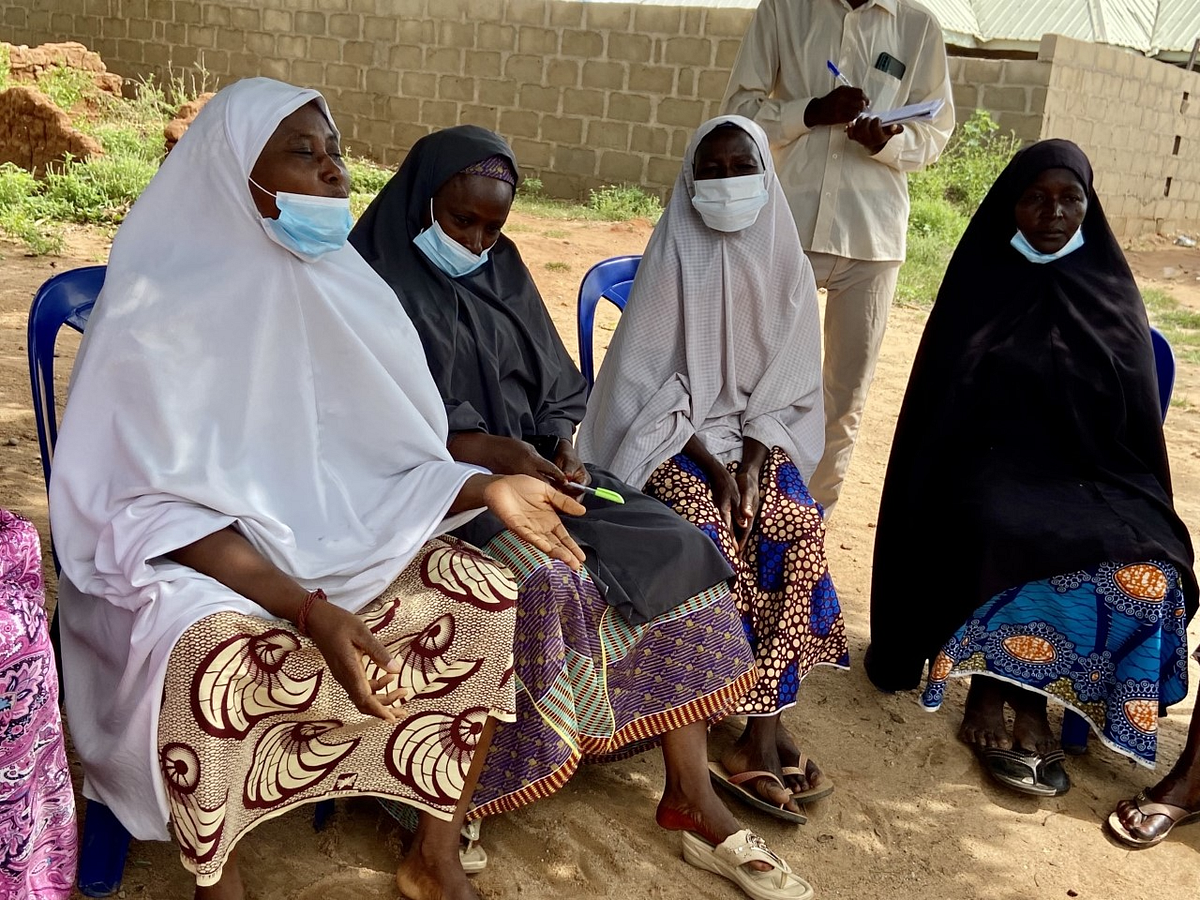
However, Asabe Usman, the facility ‘in-charge’ said the PHC has been receiving money from the Basic Healthcare Provision Fund (BHCPF) which, according to her, is being used to provide basic repairs such as fixing doors in the facility and purchasing delivery kits. She also mentioned that a small toilet will be constructed in the facility using the money. Authorities at LGA, state, and federal levels need to put in place accountability mechanisms to monitor disbursement and the efficient utilisation of the funds received through the BHCPF.
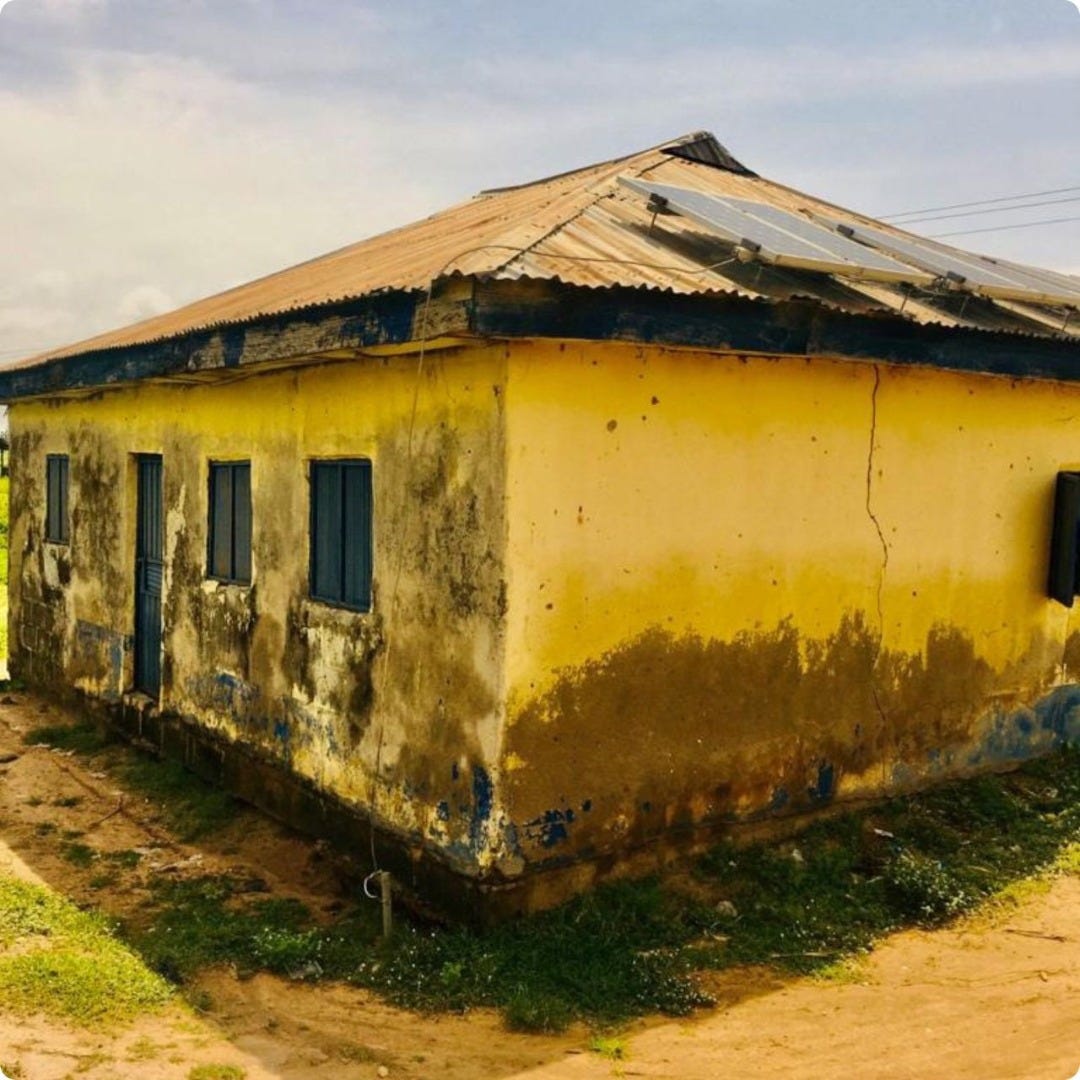
Different PHCs, similar challenges
According to health workers in both Maito and Bankogi PHCs, in addition to being overworked, the PHC also does not provide 24-hour services because health workers are not paid a shift allowance by the Wushishi LGA authorities. “Right now, we are owed several months’ salaries”, said one of the health workers. They unanimously agreed that essentials like routine antenatal medications are not readily available at the facilities, a situation that discourages women from attending antenatal.
While Maito has a relatively newly rehabilitated PHC, the fact that health workers and drugs are in short supply in addition to the lack of WASH services means the facility cannot provide optimal care to the people when they need it. For Bankogi community, the challenges are even more compounded, as the PHC is neither in a good shape nor equipped with the required manpower, drugs, and structure to provide care to the people. No health facility can function without a well-maintained building, adequate and trained health workers, and quality medication in the right quantity.
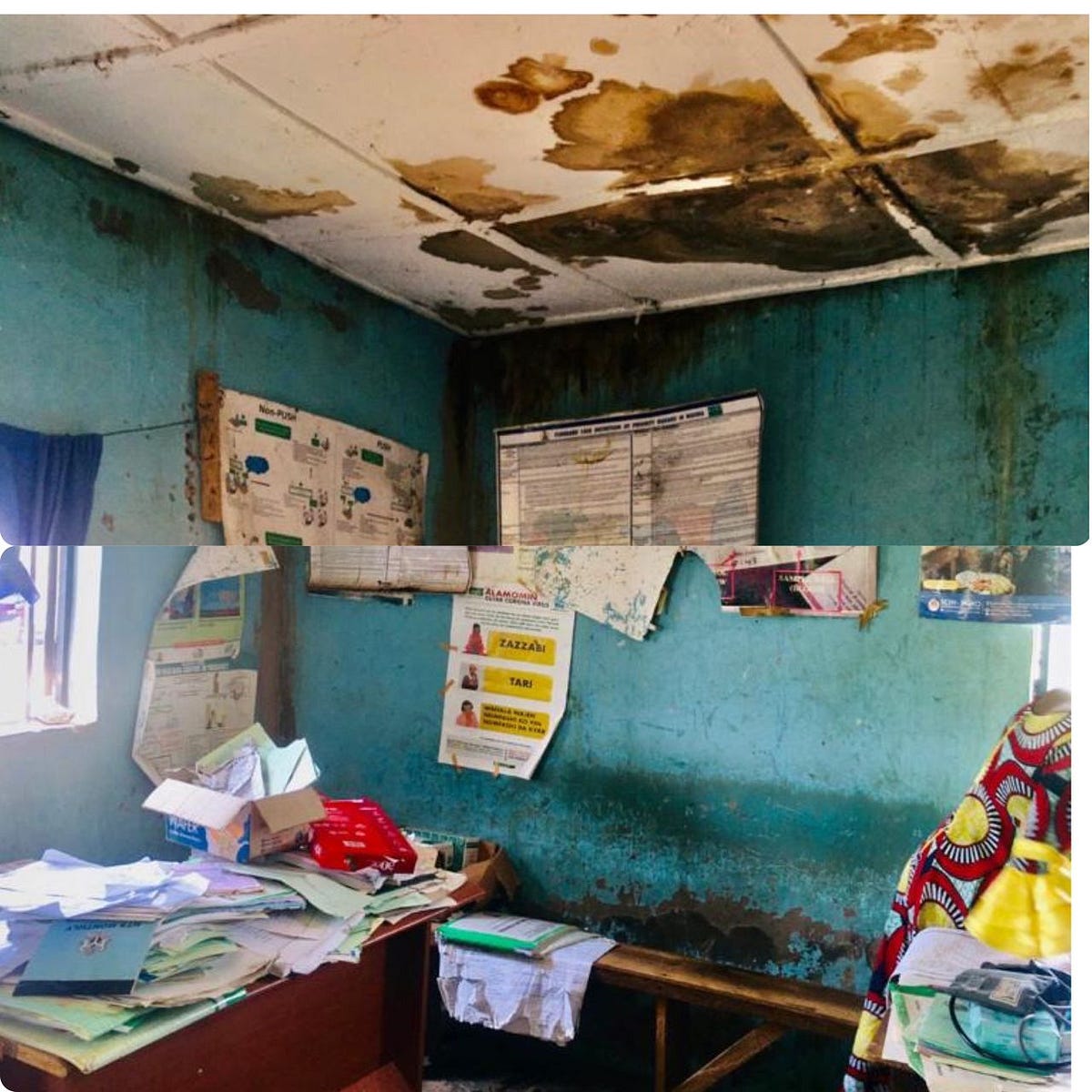
Besides the challenges with accessing quality healthcare, undoubtedly, both communities are also dealing with other challenges that are affecting their quality of life. These include poor access roads, dilapidated primary schools, and a lack of clean and quality water sources. These issues are obvious to anyone visiting Maito, Bankogi, and their neighbouring communities.
A nationwide threat
It is no secret that in Nigeria, primary healthcare at the community level is under-resourced and marked by a chronic shortage of health workers, lack of basic and essential medications, poor WASH facilities, dilapidated infrastructure, and poor staff welfare. It was in a bid to alleviate these challenges, improve health care delivery at community level and aid Nigeria’s move towards achieving Universal Health Coverage (UHC) that the National Health Act, 2014 stipulated the establishment of the BHCPF.
Local government officials and the Niger State government should rise to their responsibilities by ensuring that the residents of Wushishi LGA can access healthcare in a dignified way, that health workers have all they require to provide care in a comfortable environment and that determined effort is made to improve their quality of life. The local ward and village health committees also have a responsibility in ensuring optimum healthcare delivery in the local community.
Furthermore, the government must continue to make concerted efforts to ensure that every Nigerian can access quality and affordable healthcare when they need it and where they need it, as it is only in our collective protection that we can achieve health security.




People in the rural areas should be given adequate Health concentration.
They are humans too and they actually need help more.
I think the health sector of the federation has to put this is place